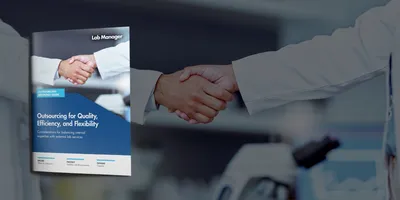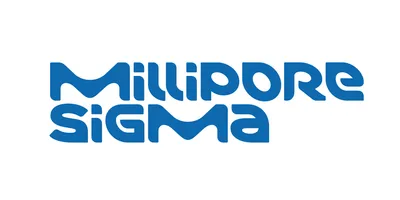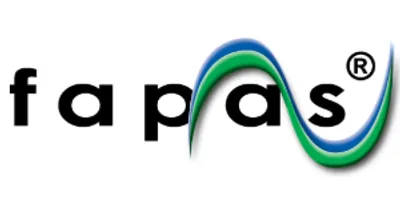
American Chemical Society (ACS) experts have concluded from ACS member surveys that members can expect to hold several jobs during the courses of their careers. These may be for a single employer but are more likely to be for several. The same is likely true of other industrial science and engineering careers. The era of the one-company, 40-year career is over. The employment world has changed dramatically in other ways as well. Hot technical specialties can “cool off ” quickly.
To succeed in this constantly changing career environment, it is best to focus on six lifelong competencies that are transferable from one job to another and from one career to another. These are:
• Have a long-term perspective on your career. Maintain your skills even in areas in which you are no longer active.
• Satisfy your customers’ ever-changing needs.
• Become and remain a creative, effective, and efficient problem solver. This requires developing criticalthinking skills.
• Develop a global perspective. This means developing cultural understanding and sensitivity. Mastering a second language can be a tremendous aid to career development.
• Become and remain motivated and persistent in the face of challenges.
• Live a healthy and balanced life. This is often essential to both career success and personal happiness.
Let’s look at each of these competencies more closely.
Have a long-term perspective
Business and technology needs will change many times during the course of your career. Understanding these needs will enable you to remain flexible and successful. For example, during the mid-1980s the price of crude oil dropped sharply and remained low for more than a decade. In response, the oil industry cut R&D employment sharply. Some flexible scientists and engineers applied the technology they had learned to environmental remediation and continued to have successful careers, albeit in the environmental industry not the petroleum industry.
Sometimes it can also pay to look back as well as forward. For example, a decade ago crude oil prices began rising again. The technologies I mastered during the 1980s became relevant again and extended to new areas such as producing oil and natural gas from low-permeability shale. I had never lost my interest in these technologies and today they constitute a major portion of my consulting business.
“Always have a Plan B,” former ACS president Helen Free advised ACS members. A Plan B is a secondary course of action should unforeseen changes make your primary career plan outdated. Having a Plan B prepared provides peace of mind in uncertain times. Your Plan B provides focus and a sense of purpose should you be forced to change the direction of your career or you decide to do so voluntarily.
For instance, I implemented a Plan B in 2004 when my employer closed its Houston laboratory and gave me an involuntary job transfer to a laboratory 1,000 miles away. I saw this possibility coming and had previously developed a plan to become a self-employed consultant and technical writer. Consequently, when my employer announced I would need to relocate to keep my job, I was prepared to implement my Plan B. I had already lined up consulting clients. My last day of employment was on a Friday and I began working on my first consulting project the next day.
Satisfy your customers’ ever-changing needs
Your customers may be consumers or other companies that buy your firm’s products or services. They may also be people working for your own firm who use the results of your work. Customers have constantly rising expectations for cost effectiveness, usually combined with lower prices.
This means making continuous small improvements in your firm’s products and services as well as trying to find the next major innovation. As Ben Franklin noted, “Watch the little things; a small leak will sink a great ship.” In Japan, this process is called kaizen and is the basis of the “economic miracle” that created the country’s economic boom in 1980.
Achieving and maintaining customer satisfaction requires a process of innovation through team-oriented collaboration. This means you have to “focus on the thinking of your most forward-looking customers,” according to consultant Bradford Goldense, president of Goldense Group, Inc. Business and career success often means going beyond this and understanding your customers’ technology so well that you can visualize improvements that they do not. They often view their operational problems and limitations as “facts of life” they have to live with. If you can design a process or product that overcomes those problems or limitations, you can often win new business for your firm from both existing customers and companies that currently don’t buy your products.
Become and remain a creative, effective, and efficient problem solver
This means developing “critical-thinking skills.” This vague term involves questioning assumptions. For example, the assumption of customers that a problem is unsolvable and just something they have to live with. Critical thinking during problem solving also involves clarifying goals and evaluating evidence. This thinking is then used to develop an action plan. Critical thinking continues through assessing your conclusions when you think you have solved the problem.
Being willing to take calculated risks is essential in solving problems. Use your critical-thinking skills to reduce the risks you must take and then forge ahead. Goldense notes, “Innovation and risk are almost synonymous.” President John F. Kennedy once said, “We should not let our fears hold us back from pursuing our hopes.”
Every company occasionally encounters a major problem. When this occurs, don’t find fault with others. Don’t play the “blame game.” Instead, find a remedy. The effort involved in finding and punishing a culprit is usually better employed in solving the problem and making sure it can’t happen again.
Develop a global perspective
A global perspective is increasingly necessary for small and midsized businesses as well as large companies. This means you need to develop an understanding of the cultures and business practices of the organizations your firm does business with and sensitivity to their different perspectives.
Becoming fluent in languages other than your own is becoming increasingly important for career advancement. For example, a graduate school friend of mine, a native-born American and research chemist with Eastman Kodak, spoke Chinese. He was chosen by his employer to open up a lab in the People’s Republic of China. Another graduate school friend spoke German very well. When his firm was acquired by a firm located in the German-speaking area of Switzerland, he was soon asked to employ his language skills as the American spokesperson in his employer’s business and R&D meetings. He often went on business trips to Europe and had extended assignments at its global headquarters. His last position was executive vice president of research.
The United States is increasingly becoming a multicultural society. This means your employer is more likely to be marketing to consumers with different cultural backgrounds and to companies that employ women and minorities in influential positions. This requires you to have cultural sensitivity to people whose cultural perspectives are substantially different from yours.
Become and remain motivated and persistent
If necessity is the mother of invention, then persistence is its father. Being an effective problem solver often means being persistent. Benjamin Franklin, no mean inventor himself, said, “Energy and persistence conquer all things.” Expressing the same idea somewhat differently in Poor Richard’s Almanac, Franklin wrote, “Little strokes fell great oaks.”
Perhaps the world’s most prolific inventor, Thomas Edison’s persistence in developing the incandescent light bulb is widely known. This was far from the only time he demonstrated persistence in his laboratory. He and his team performed 50,000 experiments to perfect the alkaline battery.
Actively manage your career
Your most important business is your own career. Take responsibility for it. This means reevaluating your career options as you progress in your career. Taking responsibility will help you identify exciting Plan B opportunities. A formal career plan that takes into account major life changes such as retirement from a full-time job is very helpful.
Seek out mentors and role models. They can help you navigate challenges and assess options at all stages of your career.
Don’t be afraid to do something different. For example, after spending 13 years working on various aspects of oil field chemistry, my then employer killed most of its oil field chemistry R&D programs in response to low oil prices. Rather than remaining in oil field technology, I exercised a Plan B strategy and moved into paper recycling chemistry–a rapidly developing area, as paper recycling was growing substantially in the 1990s. Moving into this area and successfully developing new products to deal with problems in removing ink from pulped wastepaper and solving other paper manufacturing problems was exciting and mentally stimulating.
However, I also continued keeping up with the literature in oil field chemistry. This was my Plan B. I actively moved back into this area when the field revived about a decade later. Currently, most of my consulting work is working with clients to solve oil production problems.
And now for something completely different
Doing something completely different may involve moving out of the laboratory completely. Some lab managers, particularly at junior levels, move into business management positions for their companies. Another example: foreign language proficiency can be the basis of a second career as a translator. The combination of scientific knowledge, industry experience, and mastery of a foreign language is a highly valuable skill set. Translation requires excellent writing skills in both languages. Translators usually specialize in one area: medicine, science, engineering, legal, etc. The choice of language is important. Those skilled in languages mastered by many American scientists such as German, French, or Spanish often are not able to charge as much for their services as can those who are proficient in useful but less commonly mastered languages such as Japanese and Russian. Those proficient in the languages of countries with rapidly growing economies such as China (Mandarin) and Brazil (Portuguese) can expect a growing demand for their services.
Holding professional certification as a translator from an organization such as the American Translators Association is often important in being hired as a translator.
Live a healthy and balanced life
A healthy and balanced life is essential to having an enjoyable career. This means finding the appropriate balance between your career and your personal life. This balance often changes as you progress in your career. For example, an unmarried graduate student or young scientist may be quite happy with a life spent predominantly working in the laboratory and having few outside interests. However, this balance may change should our young scientist get married and have children. It may also change as the scientist becomes active in professional societies or an engrossing hobby. The key is to find a balance that works for you at any given time and to adjust that balance should your needs and interests change.
American Chemical Society (ACS) experts have concluded from ACS member surveys that members can expect to hold several jobs during the courses of their careers. These may be for a single employer but are more likely to be for several. The same is likely true of other industrial science and engineering careers. The era of the one-company, 40-year career is over. The employment world has changed dramatically in other ways as well. Hot technical specialties can “cool off ” quickly.
To succeed in this constantly changing career environment, it is best to focus on six lifelong competencies that are transferable from one job to another and from one career to another. These are:
• Have a long-term perspective on your career. Maintain your skills even in areas in which you are no longer active.
• Satisfy your customers’ ever-changing needs.
• Become and remain a creative, effective, and efficient problem solver. This requires developing criticalthinking skills.
• Develop a global perspective. This means developing cultural understanding and sensitivity. Mastering a second language can be a tremendous aid to career development.
• Become and remain motivated and persistent in the face of challenges.
• Live a healthy and balanced life. This is often essential to both career success and personal happiness.
Let’s look at each of these competencies more closely.
Have a long-term perspective
Business and technology needs will change many times during the course of your career. Understanding these needs will enable you to remain flexible and successful. For example, during the mid-1980s the price of crude oil dropped sharply and remained low for more than a decade. In response, the oil industry cut R&D employment sharply. Some flexible scientists and engineers applied the technology they had learned to environmental remediation and continued to have successful careers, albeit in the environmental industry not the petroleum industry.
To continue reading this article, sign up for FREE to

Membership is FREE and provides you with instant access to eNewsletters, digital publications, article archives, and more.











